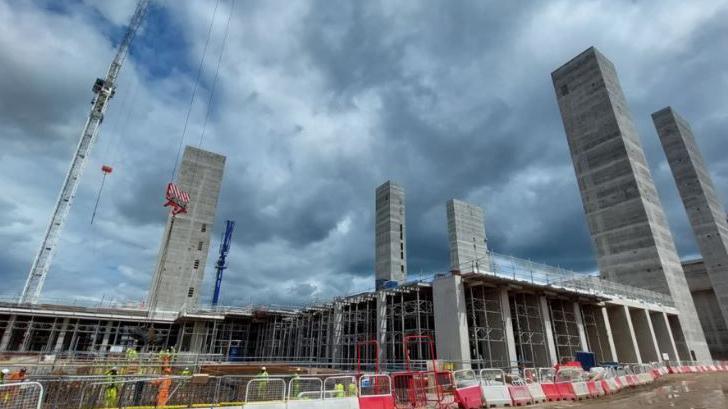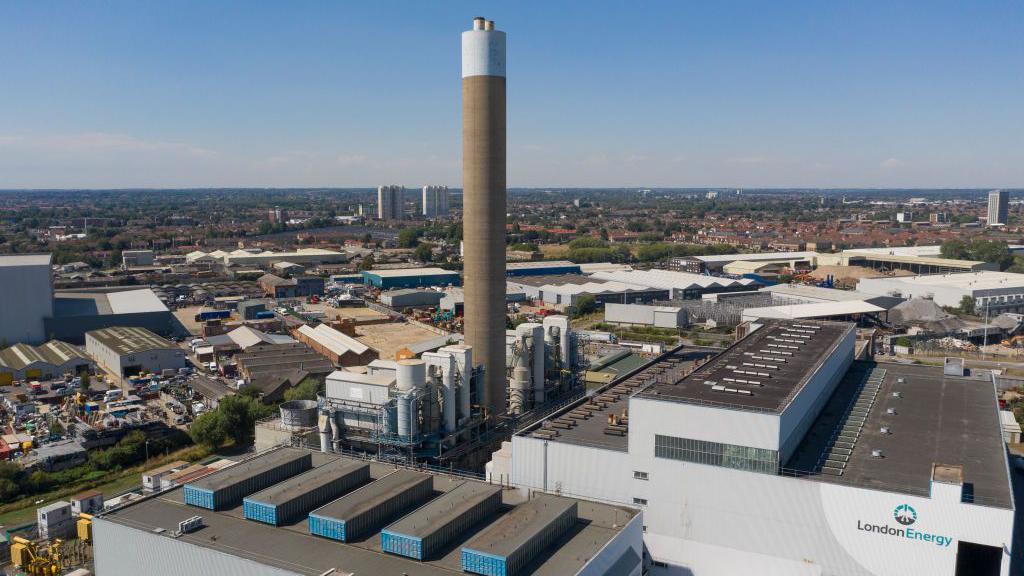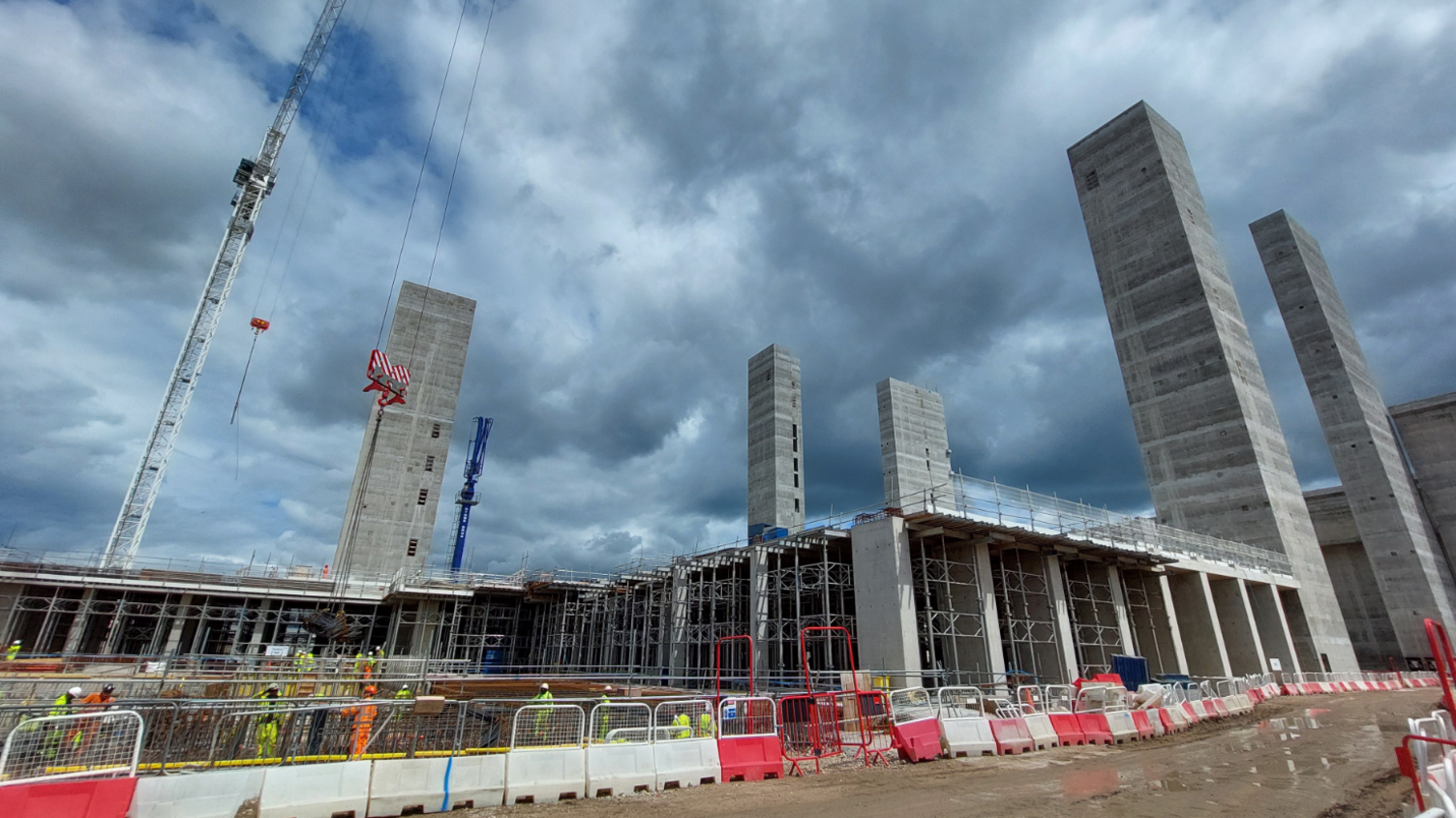'Incinerator is the least damaging to environment'

The new incinerator was expected to open in 2025 but was delayed to 2027
- Published
East London residents have been told by their local authority that burning rubbish with an incinerator is "the least environmentally damaging" method of waste management.
The incinerator in Edmonton was due to open next year but this has since been delayed to 2027.
The response from Hackney Council follows an open letter which urged the government to "immediately withdraw support" for the new facility.
The letter raised findings from a BBC report which found that "burning waste produces the same amount of greenhouse gases for each unit of energy as coal power", making electricity from waste incinerators the UK's "dirtiest form of power".
'Clean power'
It is understood that the Department for Environment Food and Rural Affairs is considering the role waste incineration will play in the future.
Hackney Council's cabinet member for climate change, environment and transport, Sarah Young, said the "energy recovery facility" was "currently the least environmentally damaging way to manage non-recyclable waste".
"This project ensures we have a modern, publicly-owned facility with the latest technology to minimise emissions, provide lower carbon energy for local homes and businesses, and reduce the need for fossil fuels," she said.
The open letter was signed by 35 bodies, including Friends of the Earth, Greenpeace and Sustainable Hackney.
It has also called on the government to pull its funding for the new facility and its district heat network connections, which uses the heat generated by burning waste to supply energy to multiple places — known as "energy from waste" or EFW.
They have also urged the government to revoke development permits to install the incinerator granted to the North London Waste Authority (NWLA), which is leading the project.
"Failure to take these steps would undermine the Government's efforts to decarbonise the electricity grid and provide clean power by 2030", they said.
Burning rubbish now UK’s dirtiest form of power
- Published15 October 2024
Critics of the facility are also concerned that carbon capture technology to help mitigate the site's CO2 emissions will not be installed in the Edmonton incinerator until 2035 at the earliest, "if at all".
NWLA's strategy document said the implementation and operation of this technology would "depend on available funding and financing".
Clyde Loakes, NWLA's chair, said there were "no grounds" to revoke the permit, adding that cancelling the delivery of the facility would hurt the UK's decarbonisation efforts.

The new incinerator is being built next to the old one, pictured
"The network in Edmonton is already built and is ready to take heat energy from the new energy recovery facility," he said.
"The impacts of not completing [it] would be detrimental to north London residents and our efforts to tackle the climate emergency."
The BBC's investigation included warnings from scientists that incinerating rubbish was a "disaster for the climate".
It found that, while the UK has abandoned coal power, the number of active incinerators in England had increased from 38 to 52 in the past five years.
The Environmental Services Agency said that emissions from dealing with waste were "challenging to avoid".
Listen to the best of BBC Radio London on Sounds and follow BBC London on Facebook, external, X, external and Instagram, external. Send your story ideas to hello.bbclondon@bbc.co.uk, external
- Published8 August 2024
